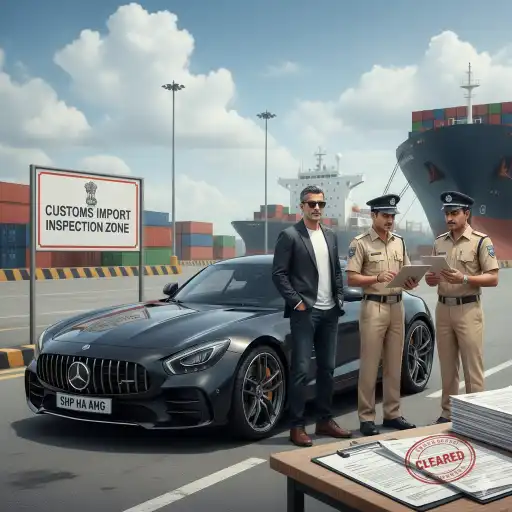Customs raids in Kerala recently uncovered the smuggling of foreign cars from Bhutan, including at locations linked to film professionals. While some high-profile owners are under scrutiny, authorities are investigating broader networks. Here’s a guide to legal imports and how Customs handles illegally imported vehicles.

Eligibility for Importing Vehicles
Non-Resident Indians (NRIs) returning to India after ending their expatriate life (transfer of residence) can import their car if they are the first owner and the vehicle has been used for at least two years abroad. The car must be free of financial liabilities and not intended for resale.
New vehicles not manufactured or sold in India can also be imported. Second-hand cars are allowed under certain conditions: they must be less than three years old from the date of manufacture, right-hand drive, have a speedometer in kilometres, and headlamps suitable for left-side traffic.
Vehicle Requirements and Homologation
Imported vehicles must meet Indian safety, technical, and emission standards, known as homologation. The Automotive Research Association of India (ARAI) is responsible for certifying homologation. Right-hand drive is mandatory for legal imports.
Process for Import
NRIs must apply to the Ministry of Commerce for a customs clearance permit with all valid documents. Once approved, the vehicle is shipped to an Indian port where Customs inspects the vehicle and ownership documents, calculates duties and taxes, and then releases the car for registration with the appropriate RTO.
Temporary Import via ATA Carnet
NRIs can temporarily import vehicles for up to six months using an ATA carnet, which allows duty-free temporary use. Left-hand drive cars are permitted under this scheme. The vehicle must be for personal use and returned to the country of origin within the specified period. Early departure requires surrendering the vehicle to Customs.
Handling Smuggled Vehicles
Seized smuggled vehicles are treated like other contraband. Customs identifies the person responsible, verifies import documentation, and issues a notice within six months (extendable to another six months). Civil and criminal proceedings may follow. Customs can levy redemption fees, duty, and penalties. If the vehicle’s value exceeds ₹50 lakh, criminal action may be initiated against the importer.
